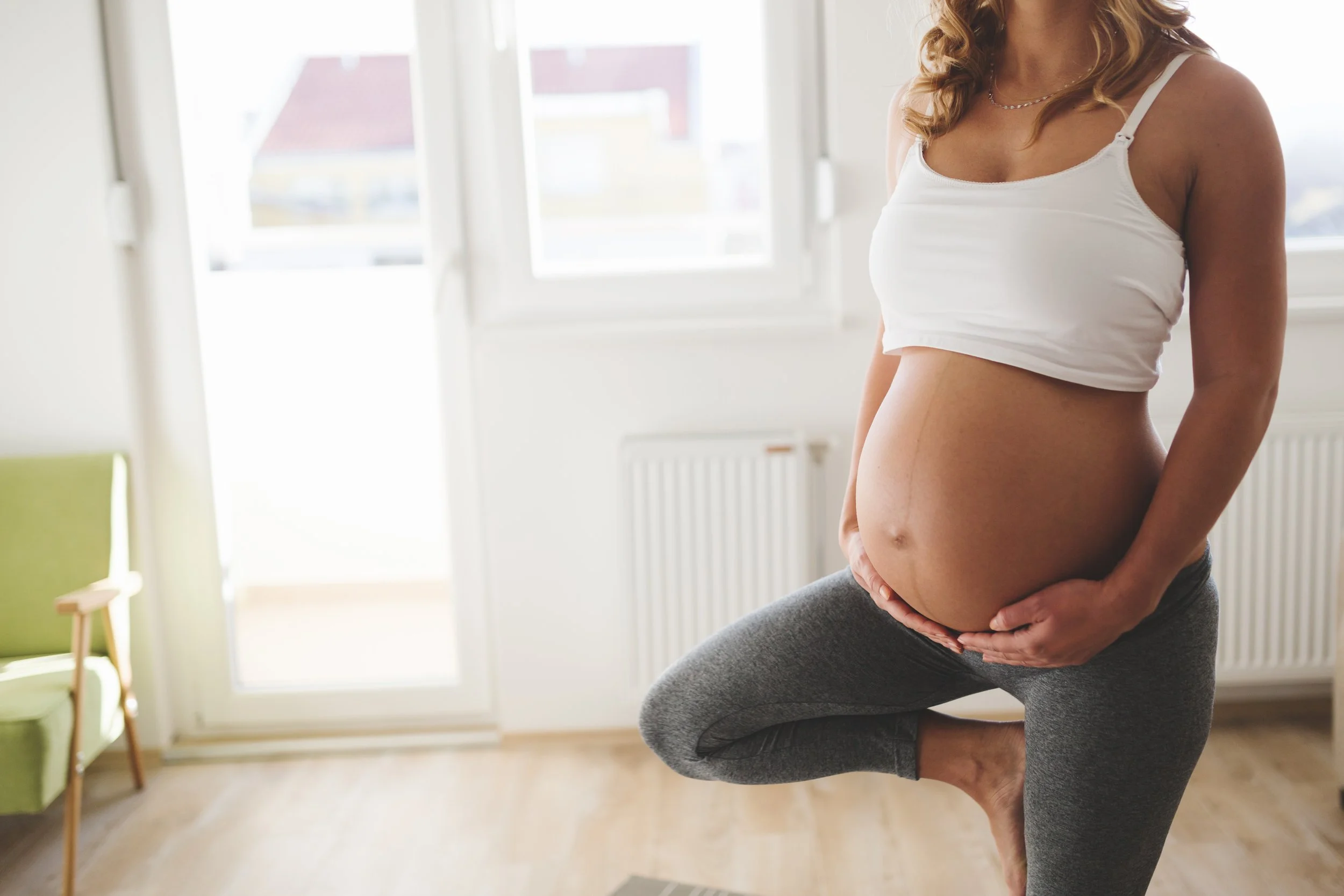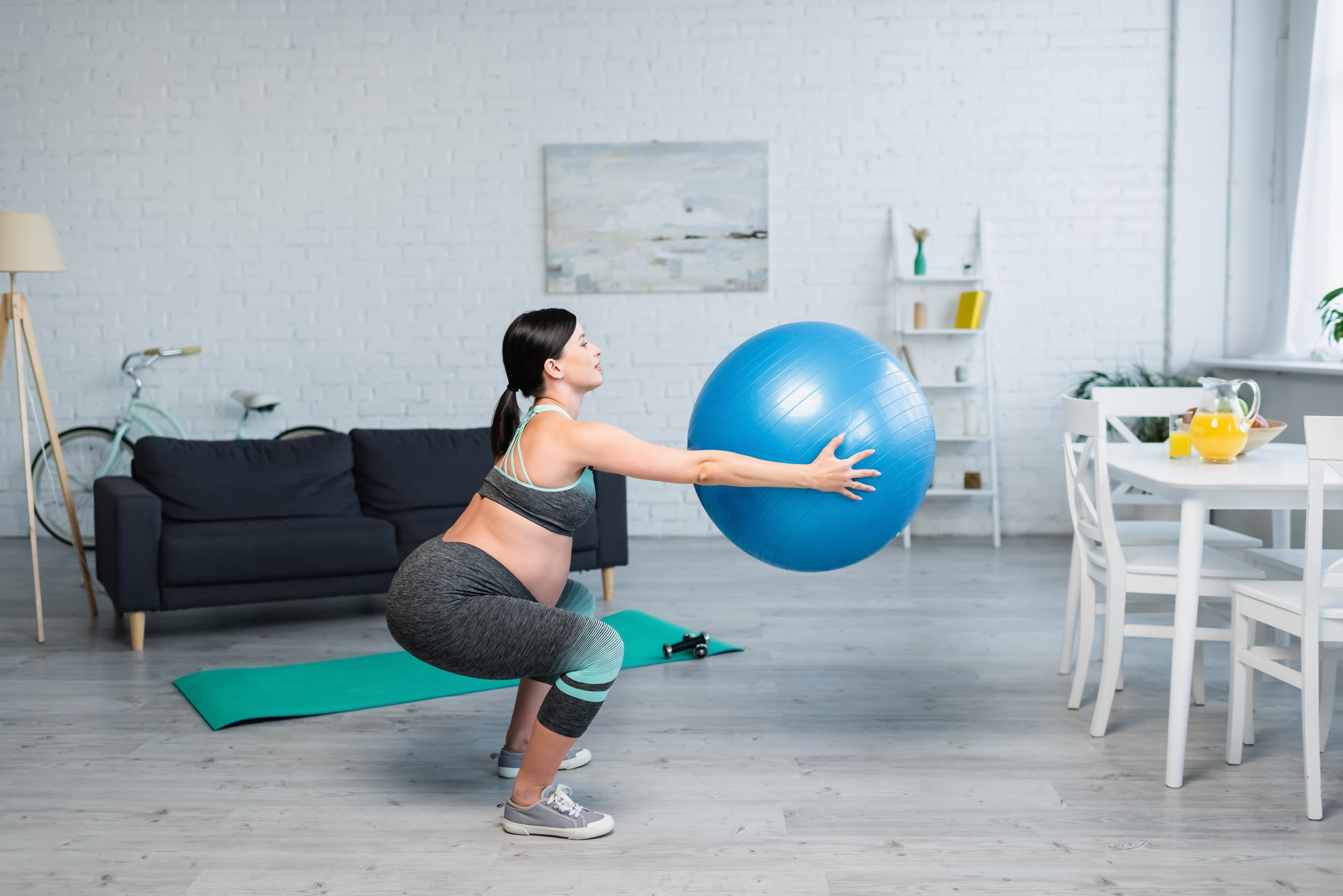excercise during pregnancy is one of the best things you can do for yourself and your baby! being in the habit of moving your body intentionally on a regular basis during pregnancy has some reported benefits, such as:
reduced risk of preclampsia
reduced risk of developing gestional diabetes
improved pain tolerance
shorter first and second stages of labor
fewer pregnancy discomforts, such as low-back pain
decreased rates of the need for surgical interventions in your birth
improved mood
(Jordan et al., 2019)
There are a lot of common misconceptions surrounding exercise during the prenatal period, including that it shouldn’t be done. This is untrue. For most pregnant people, engaging in moderate to vigorous physical activity during pregnancy is perfectly safe, as well as beneficial. For those who participated in a particular form of exercise prior to becoming pregnant, it is perfectly fine to continue exercising at the level you were prior to conception. For people who did NOT work out prior to becoming pregnant, it is recommended to ease into a lower-intensity form of physical activity, such as prenatal yoga. If you weren’t working out before, don’t expect to jump into a full-blown CrossFit workout routine once becoming pregnant! Slow and steady is the best course of action, for a few reasons:
during pregnancy, our bodies go through a few physiological changes which are important to remember when participating in any form of physical activity
During pregnancy, our cardiac workload is increased due to your baby’s need for oxygen. You are essentially breathing for two! We know that during a workout, our heart has to work harder to keep up with the demand on our cardiovascular system. You may find yourself more quickly out of breath or feeling overall taxed. Listen to your body. If it tells you to slow down, slow down! Frequent breaks, especially while doing any form of cardio, such as running, may be necessary. There is nothing wrong with taking a walk break!
Our bodies produce a hormone called relaxin very early in pregnancy. This is an essential hormone to the conception and pregnancy process. This hormone also causes the smooth muscles to relax, as well as weakens collagen such as in joints. Due to these physiological responses, we are more susceptible to injury during the prenatal period. Be mindful of what your body is telling you! If a movement feels wrong, do not do it! There are many modifications that can be made to particular exercises to make them more comfortable and safe during pregnancy. (Parket et al., 2022)
In the first trimester, it is recommended to keep your core body temperature low due to the potential risk of your baby developing a congenital anomaly. Most studies show that even vigorous physical activity in the first trimester does not increase these risks, however. For most people, our body temperature does not raise all that much even with moderate physical activity. If it’s 98 degrees outside, however, it might be better to keep your workout indoors in the air conditioning! (Davenport et al., 2022)
overall, exercise during pregnancy is considered safe and beneficial. however, it is recommended to take into some consideration when doing so:
if choosing to participate in strength training, you may need to use lighter weights than previously. this is okay!
avoid laying on your back for long periods of time after about 16-20 weeks gestation
make sure you are taking deep, FULL breaths!
walking lunges are not recommended during the prenatal period due to the strain on the pelvis and groin area
avoid any activity that may have a fall risk, or increased risk of injury, such as horseback riding, roller or ice skating, skateboarding, etc.
resources
local prenatal yoga
Pure Yoga - Toms River, NJ
https://pureyogatomsriver.com/
Moon Mama Yoga - Belmar, NJ
http://www.moonmamayoga.com/classes
online Fitness
Every Mother - includes comprehensive programs tailored to pelvic floor strength during pregnancy and postpartum
https://every-mother.com/
Katie Crewe - maternity workout programs for every phase of pregnancy!
https://katiecrewe.com/pages/maternity
if for any reason you experience feeling faint, loss of consciousness, an injury to the abdomen, contractions that follow a pattern, or bleeding during or after a workout, please call your midwife or care provider immediately.
references
Davenport, M. H., Yoo, C., Mottola, M. F., Poitras, V. J., Garcia, A. J., Gray, C. E., ... & Ruchat, S. M. (2019). Effects of prenatal exercise on incidence of congenital anomalies and hyperthermia: a systematic review and meta-analysis. British journal of sports medicine, 53(2), 116-123.
Jordan, R. G., Farley, C. L., & Grace, K. T. (2019). Prenatal and postnatal care: A woman-centered approach. Wiley Blackwell.
Parker, E. A., Meyer, A. M., Goetz, J. E., Willey, M. C., & Westermann, R. W. (2022). Do relaxin levels impact hip injury incidence in women? A scoping review. Frontiers in endocrinology, 13. https://doi.org/10.3389/fendo.2022.827512



